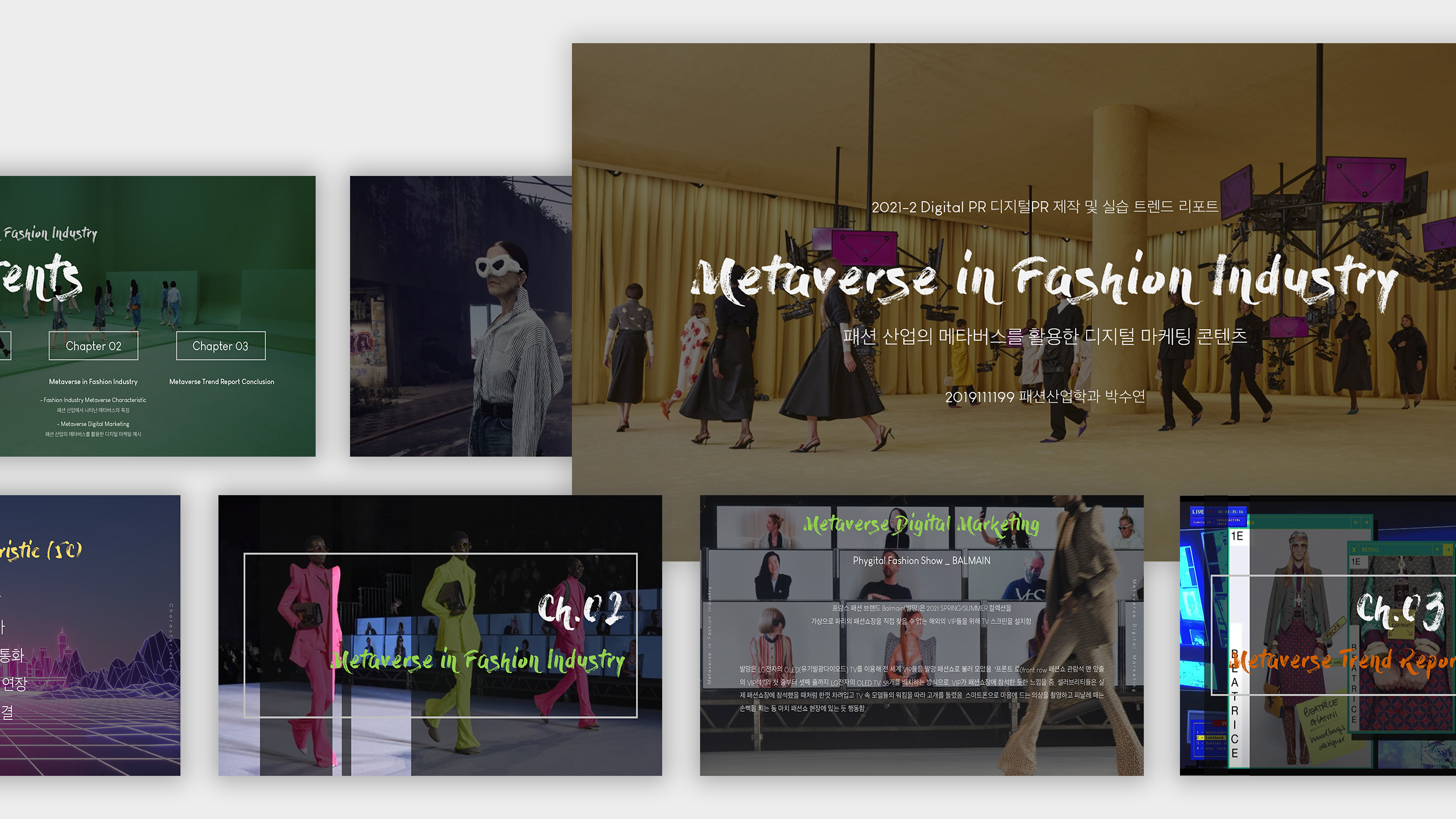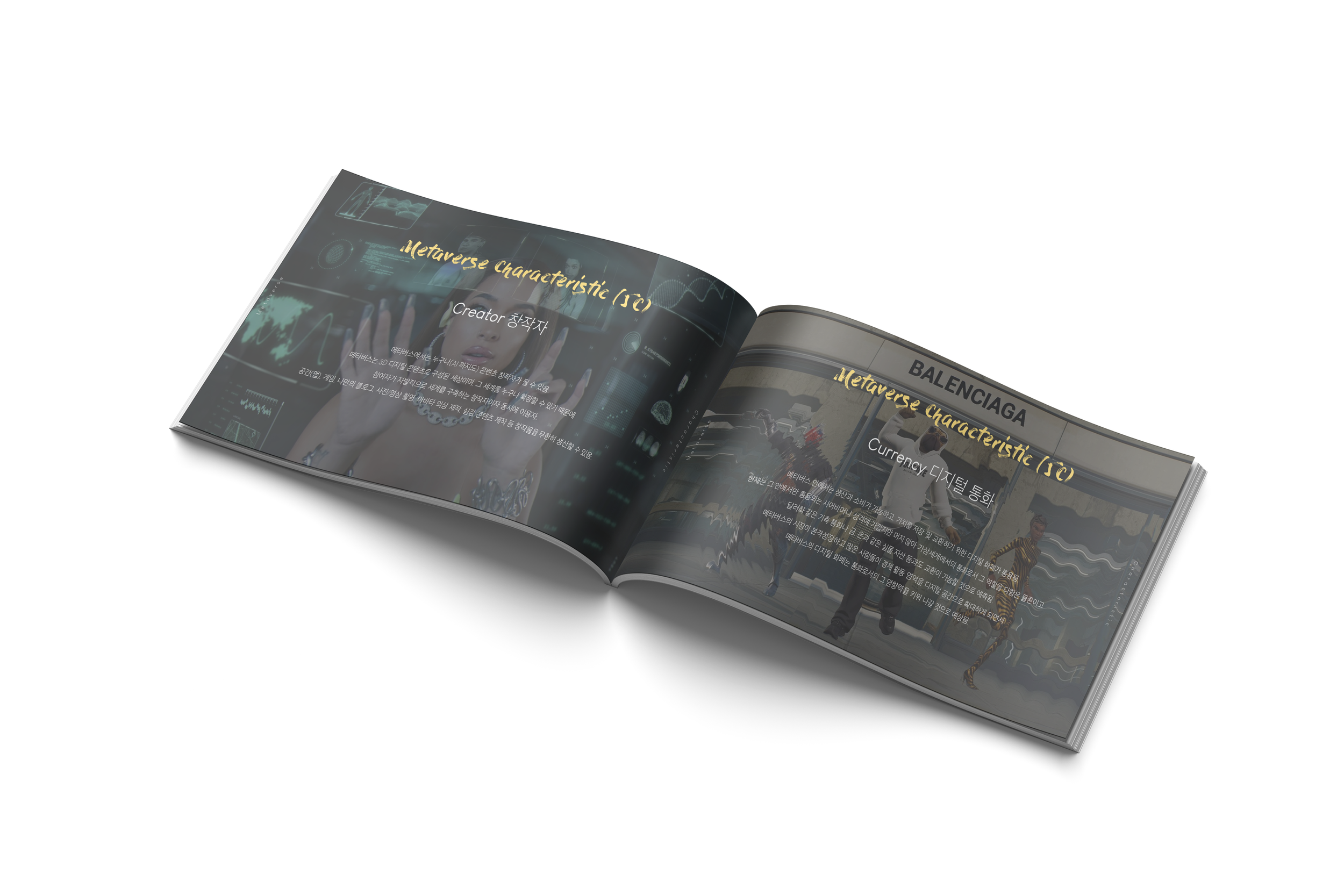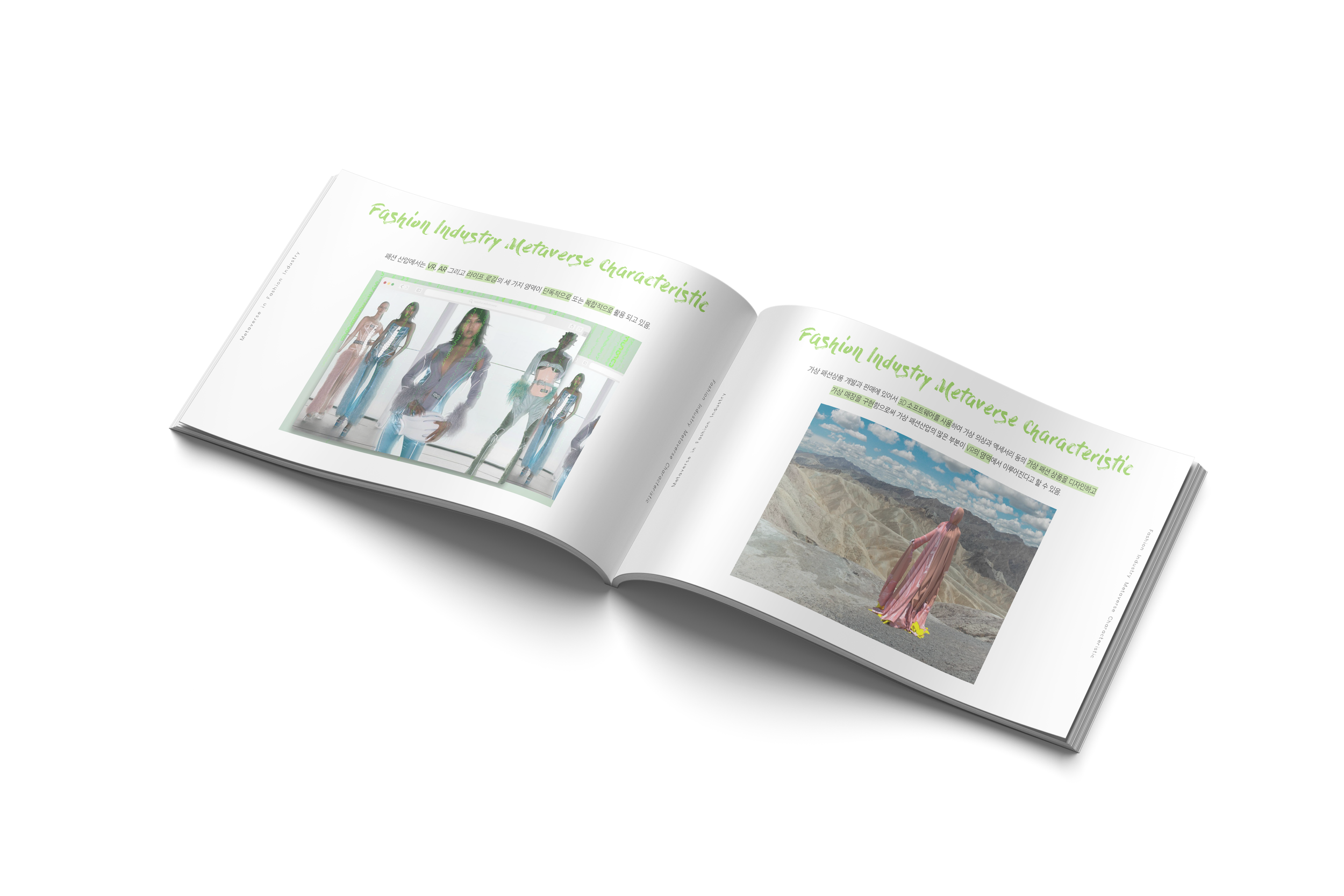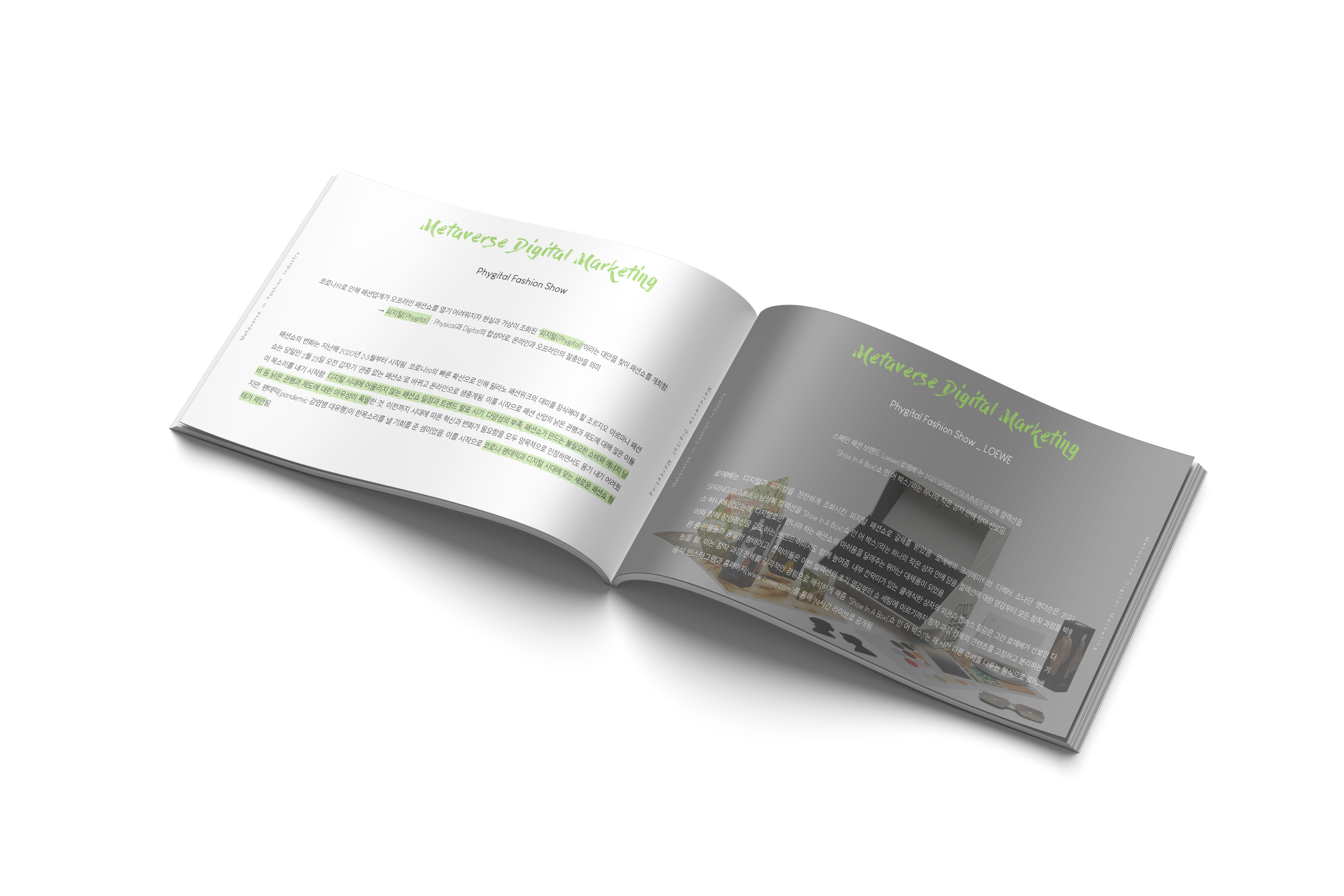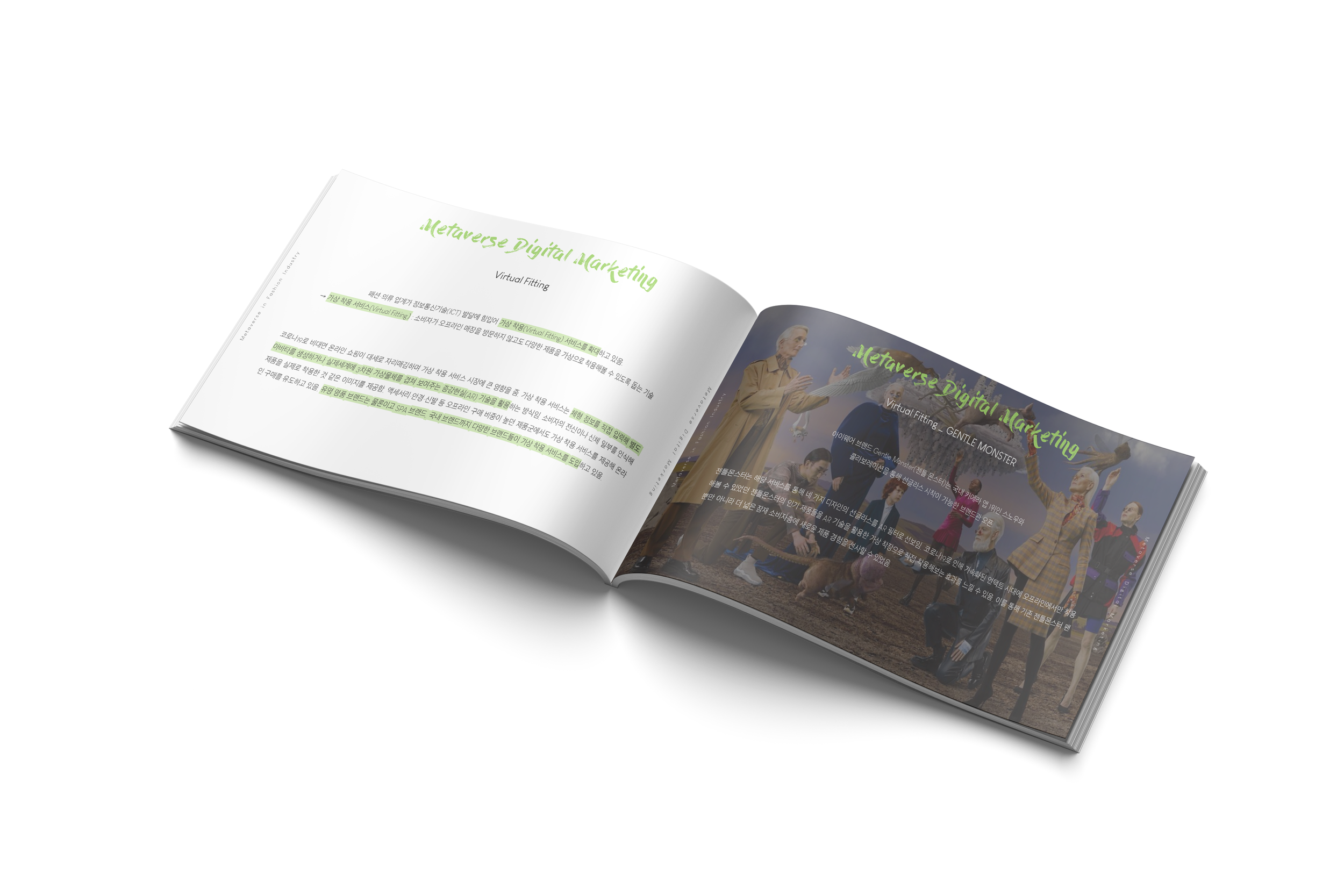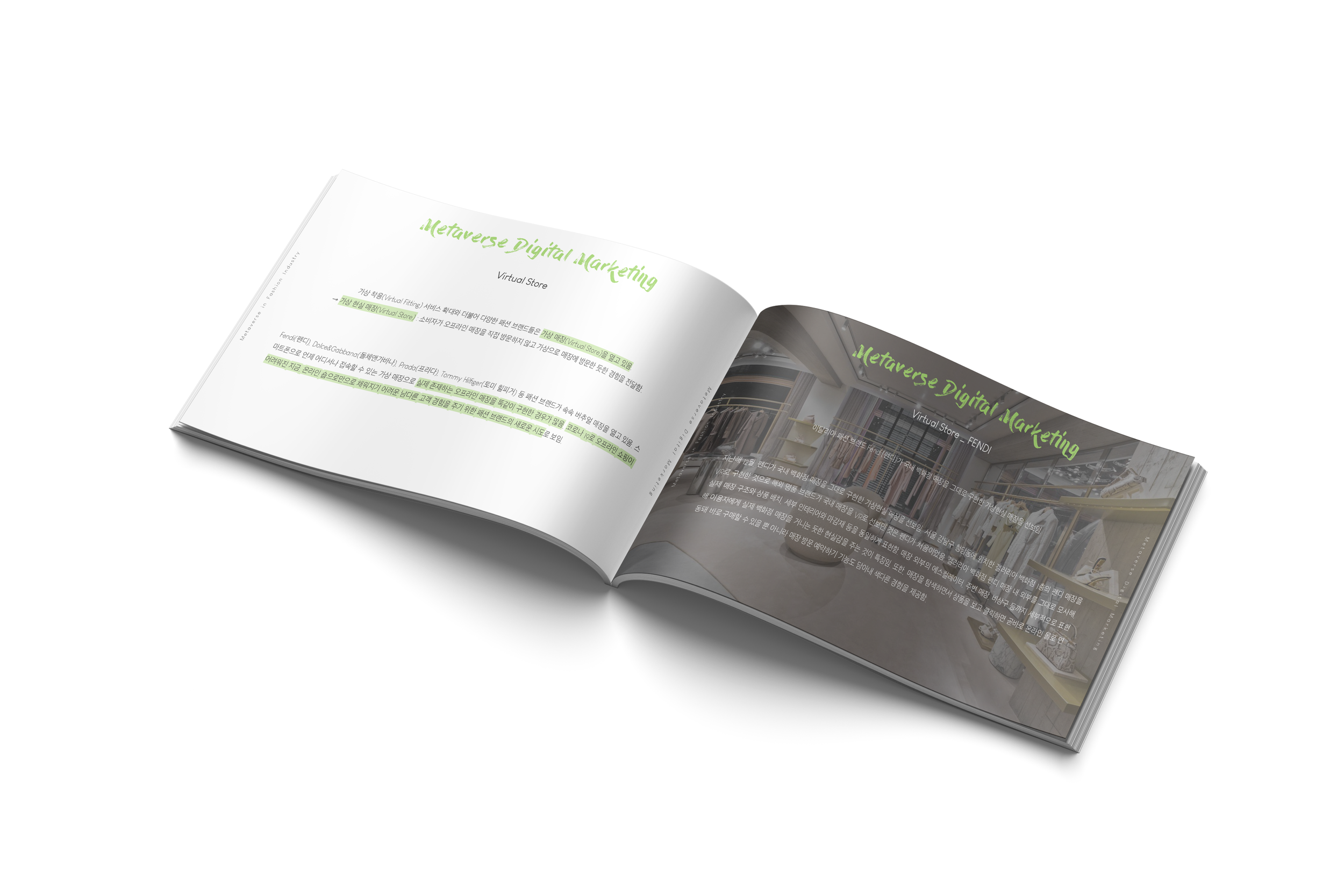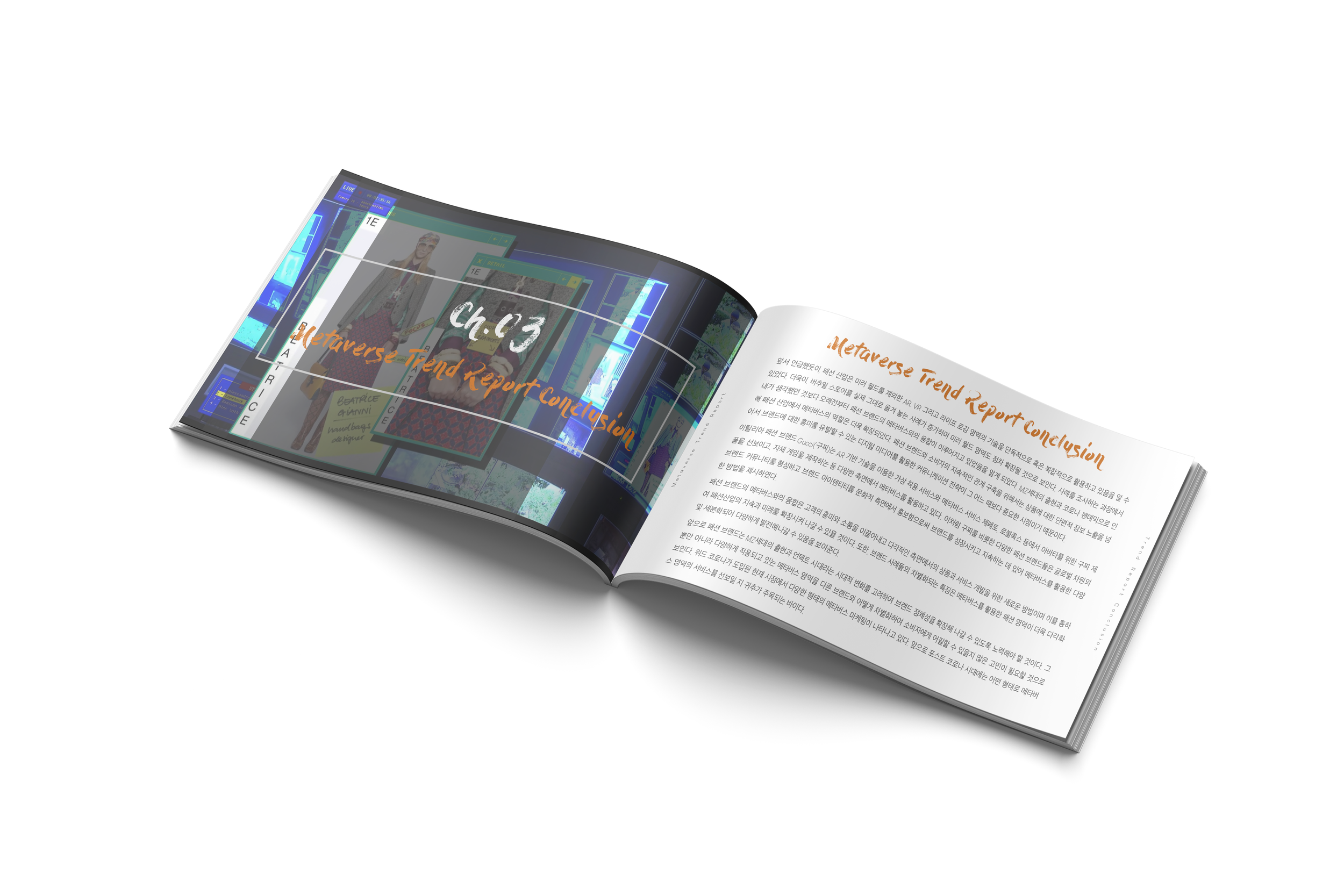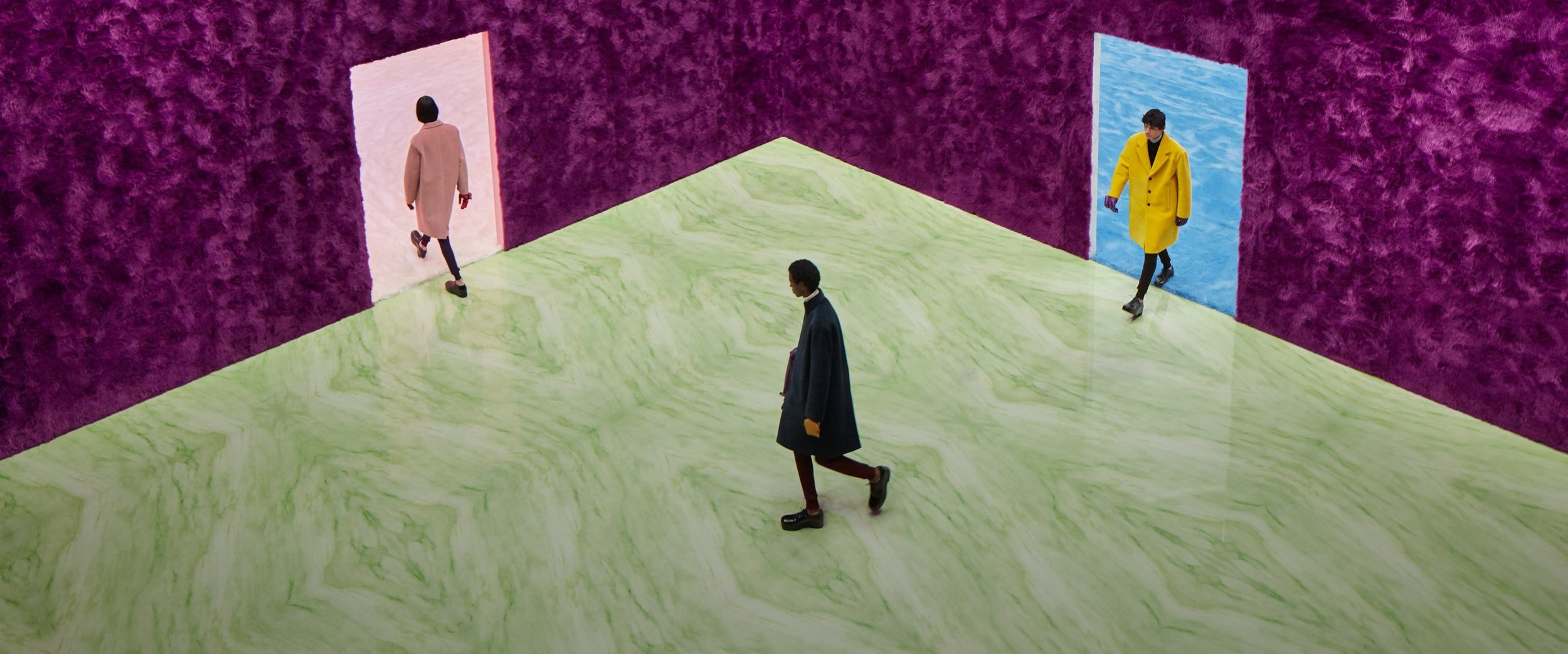
Digital Marketing Trend Report
<Production and Practice in Digital PR> in Seoul Women’s University, 2021
This project was conducted as part of the <Production and Practice in Digital PR> course, focusing on the analysis of digital marketing content using the metaverse in the fashion industry. The project is structured into three main chapters, each exploring the basic concepts of the metaverse, its application in the fashion industry, and digital marketing cases.
Initially, in the section on the definition and characteristics of the metaverse, the metaverse is described as a portmanteau of 'Meta' and 'Universe', signifying a virtual world transcending reality. The metaverse operates as a three-dimensional online virtual space where activities are conducted through avatars, accessed via display devices similar to VR (Virtual Reality) technology. The characteristics of the metaverse include the 5Cs: Canon (worldview), Creator, Currency (digital currency), Continuity (extension of daily life), and Connectivity.
Subsequently, the application of the metaverse in the fashion industry was investigated. In this sector, the metaverse utilises VR, AR, and life-logging technologies either singly or in combination. Key applications include the development and sale of virtual fashion products, the creation of virtual stores, and the visualisation of virtual fashion products through AR. Specifically, platforms like ZEPETO allow customers' avatars to purchase and wear virtual fashion products.
The final part introduces various digital marketing cases in the fashion industry utilising the metaverse. This includes marketing using the AR avatar service provided by the social network ZEPETO, the use of virtual influencers, virtual fitting services, and the establishment of virtual stores. Notably, famous fashion brands such as Gucci, Christian Louboutin, and Ralph Lauren have held virtual fashion shows or sold virtual products in the metaverse, demonstrating that the metaverse has become a new battleground for fashion marketing.
This project provides insights into how a new form of digital marketing strategy can be implemented through the integration of metaverse technology with the fashion industry. Additionally, it showcases how the virtual world offered by the metaverse can provide consumers with new experiences and opportunities for interaction, crossing the boundaries between the real and the virtual.
Through this project, I gained various insights into the impact of the metaverse in the field of digital marketing. I understood that the metaverse extends beyond mere virtual reality, offering a three-dimensional online virtual space where users can engage in various activities through their avatars. Particularly, learning about the 5Cs of the metaverse (Canon, Creator, Currency, Continuity, Connectivity) helped me appreciate the diverse aspects and potentials of the metaverse.
Furthermore, I grasped the influence of the metaverse on the fashion industry, especially regarding the development of virtual fashion products, the establishment of virtual stores, and the visualisation of virtual fashion products through AR technology. This analysis confirmed that digital technology is expanding the boundaries of the fashion industry and creating new consumer experiences.
Analysing digital marketing cases that utilise the metaverse showed me new marketing approaches, such as branding opportunities in virtual spaces, the use of virtual influencers, and virtual fitting services. Notably, marketing activities conducted by renowned fashion brands within the metaverse highlighted that the virtual world can yield meaningful marketing outcomes connected to the real world.
I realised the importance of creative and innovative content for successful marketing in the metaverse environment. To attract consumer interest and encourage participation, it's necessary to transcend traditional marketing methods and employ new ideas and strategies.
The importance of interaction and experience provision within the metaverse was another key learning point. The metaverse has the potential to offer more immersive and personalised experiences to users, contributing to enhanced brand perception and loyalty among consumers. This project provided me with a deep insight into the future direction of digital marketing, particularly how the metaverse can be utilised across various sectors, including the fashion industry.
Project Outcome
You can see the learning outcome through this file. Unfortunately, only the Korean version is available.
